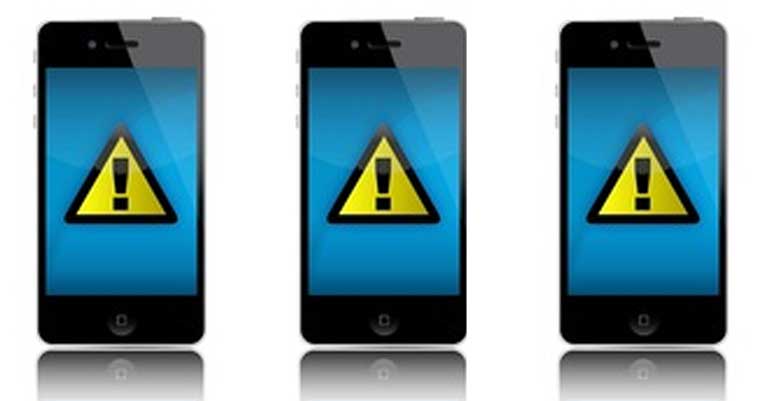Find the Right Signal Booster for You
Answer a few questions and we'll recommend the best solution to solve your cell signal problems.
Answer a few questions and we'll recommend the best solution to solve your cell signal problems.

Look down at your cell phone. How many bars of service do you have? Although the number of bars on your phone is generally a good way to see signal strength, it’s also wildly different from one carrier to the next.
What might be 3 bars on T-Mobile is only 1 bar on AT&T despite receiving the exact same signal and having the exact same data speed. That's because there's no standard on how companies can represent signal bars.
A much more accurate and technical way is to look at decibel (db) gain.
Take advantage of our system design and installation services. Learn more or call us for a free consultation: 1-800-969-8189.
Cell phone signal strength is measured in decibels. Usually, -50 dB represents great signal (full bars) and -110 dB is virtually no signal (dead zone). This is true across all carriers and all phones.
When people are encountering dropped calls, lost connections, and very slow internet, they are usually near the -110 dB zone.
This is a reason why cell phone signal boosters have gained in popularity along with the rise of smartphones and other cellular devices. A cell phone signal booster helps boost the dB levels closer to the -50 dB zone for better signal and connection on 3G and 4G LTE.
When selecting a cell phone signal booster, it’s important to look at the dB gain rating of the amplifier.
dB gain is a unit of measurement that defines the power of amplification. So a +10 dB gain is stronger than a +7 dB gain. However, dB gain is measured exponentially meaning there’s a big difference between a +7 and +10 db gain.
How much of a difference?
It’s double the power! For every +3 dB gain translates to doubling the signal strength. For every +10 dB is 10 times the signal strength. +20 dB gain? That’s a 100x more powerful.
To compare, our top selling car signal booster is the weBoost 475021 Drive 4G-X. It’s a powerful unit at +50 dB gain. Now, our top selling home amplifier is the weBoost 470144-Home MultiRoom Signal Booster Kit . It’s a very powerful performer at +70 dB gain.
Now we all know there’s a difference between a +50 and +70 dB gain, but the difference in power is much bigger than what the average person thinks.
Again, +3 dB gain is 2x the power of signal strength. +10 dB gain is 10x the power. +20 dB gain is 100x the power.
So the weBoost 470144 Connect 4G-X is 100 times more powerful than the weBoost 470108 Drive 4G-M! Of course, it is a building signal booster, so they need to be more powerful to cover the entire home or building. But there are other factors to consider like distance from tower and outside and building material interference, so the signal strength isn't an exact guarantee, just a really, really good estimate of what you could receive.
So the next time you’re comparing cell phone signal boosters, look for the dB gain. Because the difference between a +65 and +70 dB isn’t small, it’s more 3x the power and signal amplification.
Below is a quick reference chart to show the dB gain and amount of power amplified.
| Decibel Gain | Power Increase |
| 3 dB | 2 times the power |
| 6 dB | 4 times the power |
| 10 dB | 10 times the power |
| 12 dB | 16 times the power |
| 20 dB | 100 times the power |
Interested in Learning More? Check Out Our Cellular Info Hub / WiFi Info Hub


